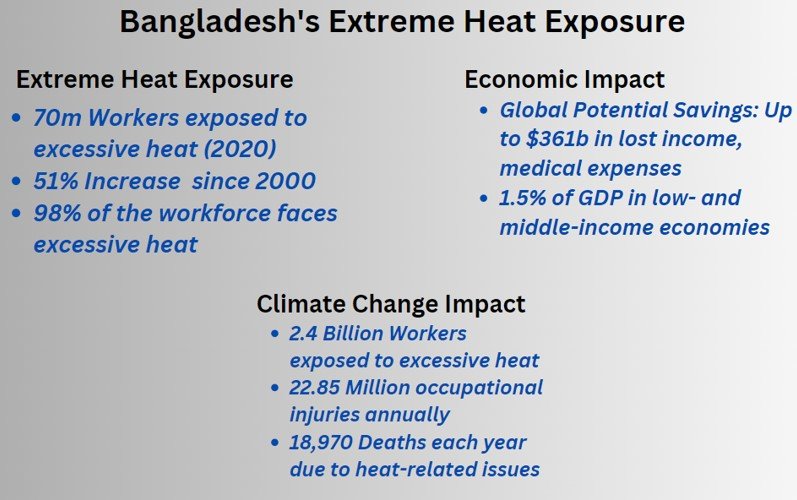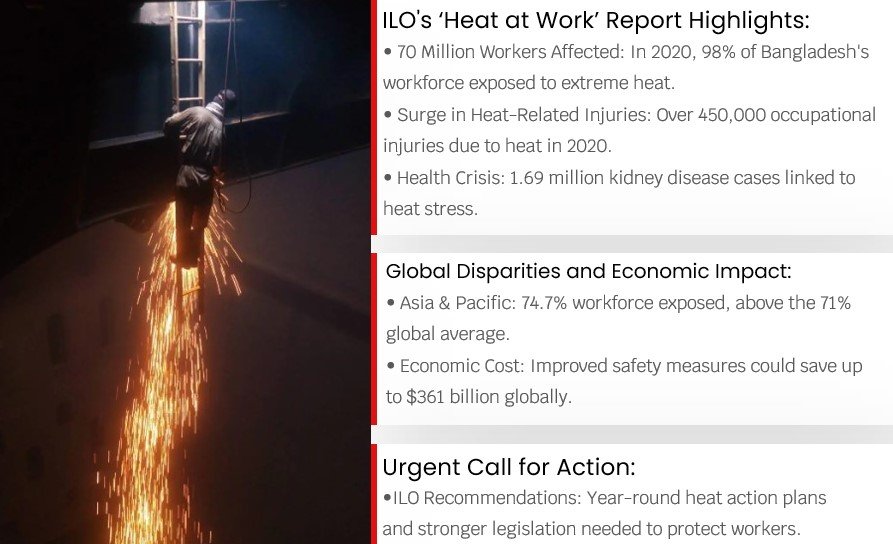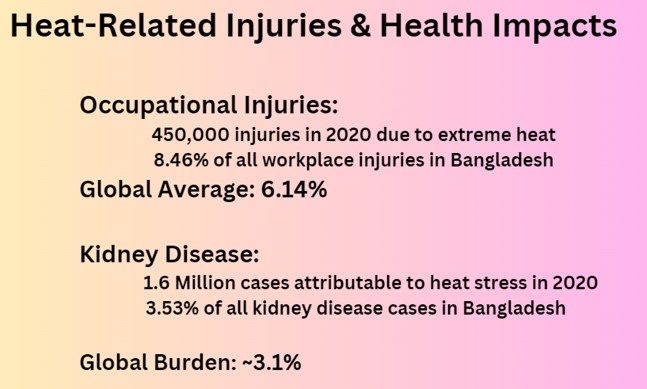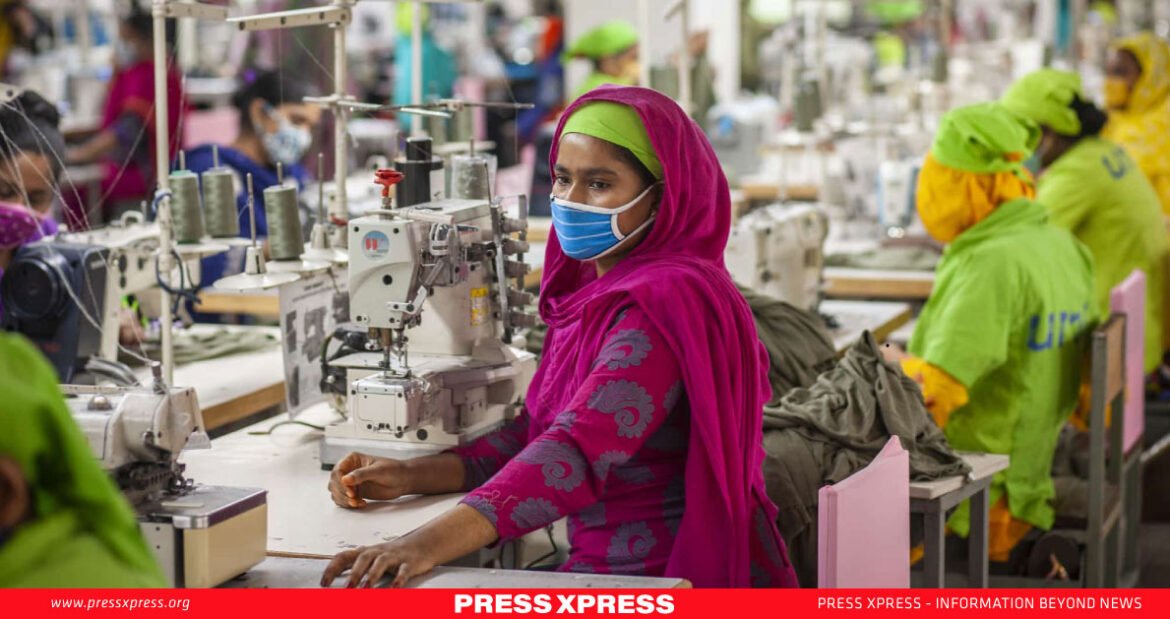The impact of excessive hit at work in Bangladesh is higher than the global average, though the situation has worsened more slowly over the past 20 years, according to the International Labour Organisation.
The International Labour Organization (ILO) released a new report titled ‘Heat at Work: Implications for Safety and Health’ on July 25, revealing that the magnitude of excessive heat at work in Bangladesh surpasses the global average. This trend has been slowly worsening over the past two decades, posing significant risks to workers’ health and safety. Despite this concerning revelation, the situation has worsened more slowly over the past two decades than global trends.
Bangladesh’s Workforce Faces Extreme Heat Exposure
The ILO report paints a stark picture of heat exposure in Bangladesh’s labor force. In 2020, a staggering 70 million workers in the country were exposed to excessive heat, marking a 51 percent increase since 2000. This rise significantly outpaces the global average increase of 34.86 percent. Even more alarming is that over 98 percent of the national labor force faces exposure to excessive heat, with the vast majority occurring outside of heat waves.

Heat-Related Injuries and Health Consequences

The consequences of this extreme heat exposure are severe. In 2020 alone, over 450,000 occupational injuries in Bangladesh were attributed to extreme heat, accounting for 8.46 percent of all workplace injuries in the country. This figure is notably higher than the global average of 6.14 percent, although the rate of increase has been slightly slower in Bangladesh compared to the global trend.

The health implications extend beyond immediate injuries. The report indicates that in 2020, over 1.69 million people in Bangladesh were living with kidney disease attributable to heat stress at work. This represents 3.53 percent of all kidney disease cases in the country, surpassing the global burden of approximately 3.1 percent.
Global and Regional Context
Asia & Pacific:
- 74.7% of the workforce exposed to excessive heat
- Exceeds the global average of 71%
Other Regions:
- Africa: 92.9%
- Arab States: 83.6%
Global Statistics (2020):
- 4,200 Deaths from heatwaves
Global Context and Regional Disparities
While Bangladesh’s situation is concerning, it reflects a broader global issue. The ILO report reveals that workplace exposures to excessive heat in Asia and the Pacific were above the global average, affecting 74.7 percent of the workforce. Globally, 4,200 workers lost their lives to heatwaves in 2020, with a total of 231 million workers exposed to heatwaves that year – a 66 percent increase from 2000.
The report highlights regional disparities, with workers in Africa, the Arab States, Asia, and the Pacific most often exposed to excessive heat. In these regions, 92.9 percent, 83.6 percent, and 74.7 percent of the workforce were affected, respectively, all exceeding the global average of 71 percent.
Economic Impact and Potential for Change
The economic ramifications of this heat crisis are substantial. The ILO estimates that improved safety and health measures to prevent injuries from excessive heat in the workplace could save up to $361 billion globally in lost income and medical treatment expenses. Low- and middle-income economies bear the brunt of this impact, with costs potentially reaching about 1.5 percent of national gross domestic product.
Call for Action and Recommendations
Manal Azzi, ILO’s team lead for occupational safety and health, emphasizes that this is not just a workplace issue, but a human rights, workers’ rights, and economic issue. The ILO calls for year-round heat action plans, legislation to protect workers, and stronger global collaboration to address this crisis.
The report examined legislative measures in 21 countries to identify effective workplace heat safety plans and outlined key concepts for a comprehensive safety and health management system.
Climate Change and the Future of Worker Safety
Building on a previous report from April, the ILO underscores the link between climate change and worker safety. The organization warns that climate change poses serious health hazards for 2.4 billion workers exposed to excessive heat, resulting in 22.85 million occupational injuries and 18,970 deaths annually.
As temperatures continue to rise globally, addressing workplace heat exposure becomes increasingly crucial. The situation in Bangladesh serves as a stark reminder of the urgent need for comprehensive measures to protect workers from the dangers of excessive heat, both within the country and around the world.


